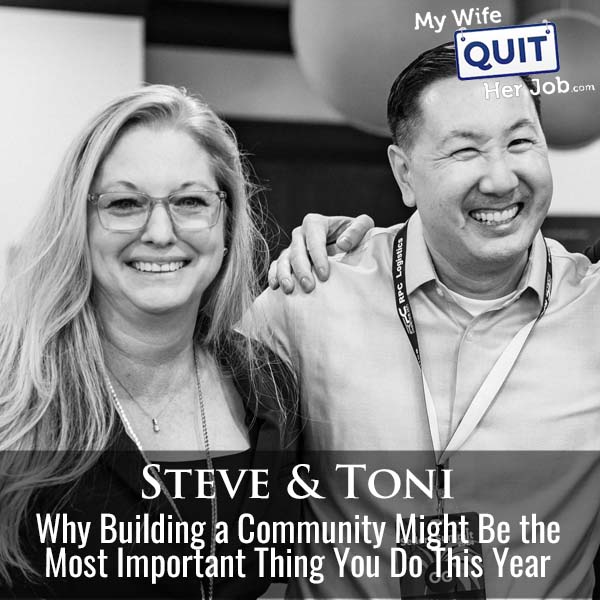596: Why Building a Community Might Be the Most Important Thing You Do This Year

MyWifeQuitHerJob.com Founder Steve Chou Explores Community Building in E-commerce
Steve Chou, founder of MyWifeQuitHerJob.com, recently delved into the intricacies of community building within the e-commerce landscape in his podcast. The discussion, featuring his wife Toni, centered on the launch of a Discord community for his class members and the broader strategic importance of fostering online engagement in a rapidly evolving digital environment.
The Shift Towards Community-Driven Engagement
Chou emphasized the increasing importance of community as traditional communication channels like email and SMS face deliverability challenges. "What's the best way to get people to listen? It's by building community," he stated, highlighting the need for e-commerce businesses to cultivate a sense of belonging and shared purpose among their customers.
Discord: A Platform for the "Geeks" and Beyond
The decision to launch a community on Discord, a platform often associated with gaming and tech enthusiasts, stemmed from its extensibility, robust API, and cost-effectiveness. Chou noted the platform's capabilities for customization and automation, allowing for the integration of bots and tailored features. However, he acknowledged a potential initial tech barrier for some users, requiring a soft launch and troubleshooting support.
Facebook Groups: A Declining Force?
Chou expressed strong reservations about using Facebook groups for community building, citing issues with search functionality, algorithmic visibility, and the platform's inherent distractions. He argued that Facebook's design often leads to wasted time and reduced focus, hindering effective community management. Toni Chou countered that Facebook is still relevant and useful for some demographics.
"Facebook groups suck," Chou stated bluntly, contrasting the platform's limitations with the focused environment offered by Discord, where engagement is primarily centered on the community's specific purpose.
The Challenges of Community Management
Both Steve and Toni Chou acknowledged the significant time and effort required to cultivate and maintain a thriving online community. Moderation, spam prevention, and ensuring productive discussions are ongoing tasks that demand active involvement. Chou suggested leveraging AI tools for sentiment analysis and automated moderation, while also considering enlisting experienced community members as moderators.
Expert Perspective: The Evolving Role of Online Communities Dr. Emily Carter, a professor of digital marketing at the University of California, Berkeley, emphasizes the critical role of online communities in today’s digital landscape. "Building a strong online community is no longer optional; it's essential for businesses seeking to foster brand loyalty and drive sustainable growth," says Dr. Carter. "Platforms like Discord, with their focus on niche interests and real-time interaction, offer unique opportunities for businesses to connect with their target audiences on a deeper level." Dr. Carter also cautions that community building requires a long-term commitment and a genuine desire to engage with customers.
Alternatives and Future Considerations
The podcast explored alternative community platforms, including Slack (limited by its per-member pricing) and Geneva (a lesser-known, free platform). Chou emphasized the importance of choosing a platform that is relatively mainstream and accessible to the target audience. He also highlighted the evolving landscape of community platforms and the need for businesses to adapt their strategies accordingly.
Historical Context: The Evolution of Online Communities The concept of online communities is not new. Early internet forums and bulletin boards served as precursors to today's sophisticated platforms. However, the rise of social media and the increasing fragmentation of online audiences have created new challenges for community builders. According to data from Pew Research Center, while social media usage remains high, trust in these platforms has declined, leading some users to seek out more curated and focused online spaces.
Key Takeaways
Building a strong online community is crucial for e-commerce businesses in a changing digital environment. Discord offers a flexible and customizable platform for community engagement, but may present initial technical challenges for some users. Facebook groups have limitations in terms of visibility, distraction, and control. Effective community management requires significant time, effort, and moderation. Businesses should carefully consider their target audience and platform features when choosing a community platform.
Chou's exploration of community building underscores the ongoing evolution of e-commerce strategies in response to changing consumer behavior and technological advancements. As businesses navigate the complexities of the digital landscape, fostering a sense of community will likely remain a key differentiator for success.
Originally sourced from: WifeQuitHer Job
